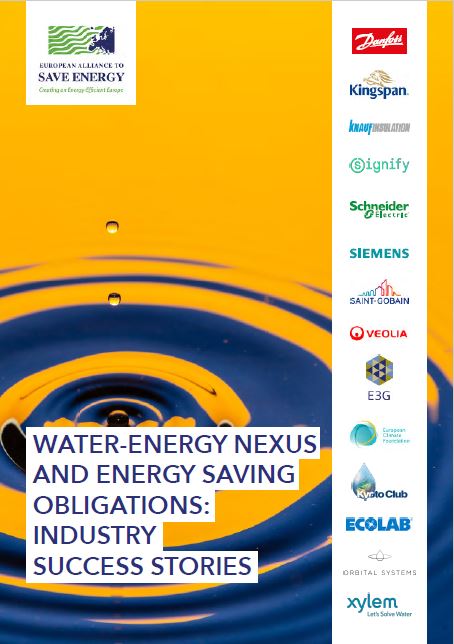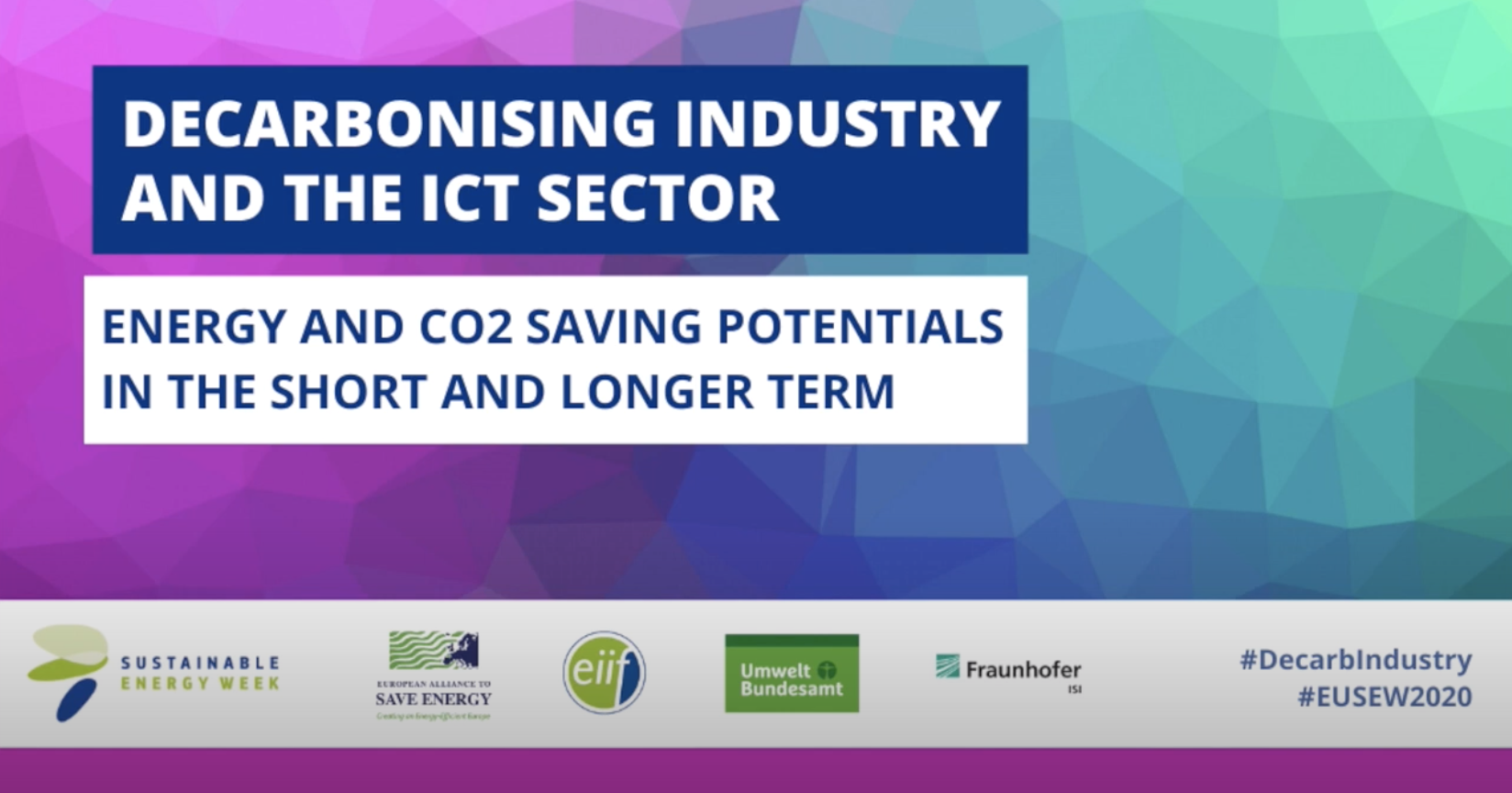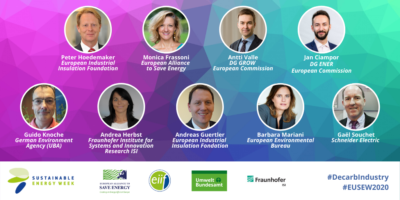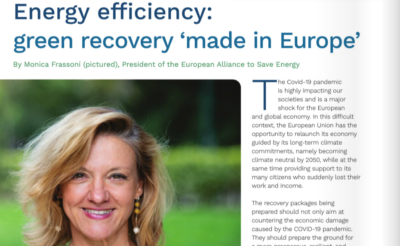Water-energy nexus and energy saving obligations: industry success stories

This paper showcases concrete examples of water and energy saving projects across sectors and European countries. These feature some of the most advanced environmental technologies currently available on the market, allowing to deliver environmental, economic and social benefits.
Water and energy are deeply entwined. The water-energy nexus refers to the relationship between how much energy is needed for abstracting, moving, heating, cooling, storing, treating and disposing water and how much water is used for generation and transmission of energy.
This nexus is expected to intensify in the coming years. So far, Member States have notified a limited set of water-related measures in the framework of Article 7 of the Energy Efficiency Directive (EED). The most frequently notified measure is the production of hot water by solar collectors or more efficient gas water heaters. However, these measures rather relate to heat generation than water production, distribution, use, and wastewater treatment.
Raising awareness about the energy-water nexus can help:
- Member States prioritise efficient use of both water and energy;
- the business community to bring to market technologies and solutions designed to deliver water and energy savings across industries, municipalities and buildings; and
- the EU to deliver the energy savings and emission reductions necessary to achieve the ambitious goal of climate neutrality by 2050.




